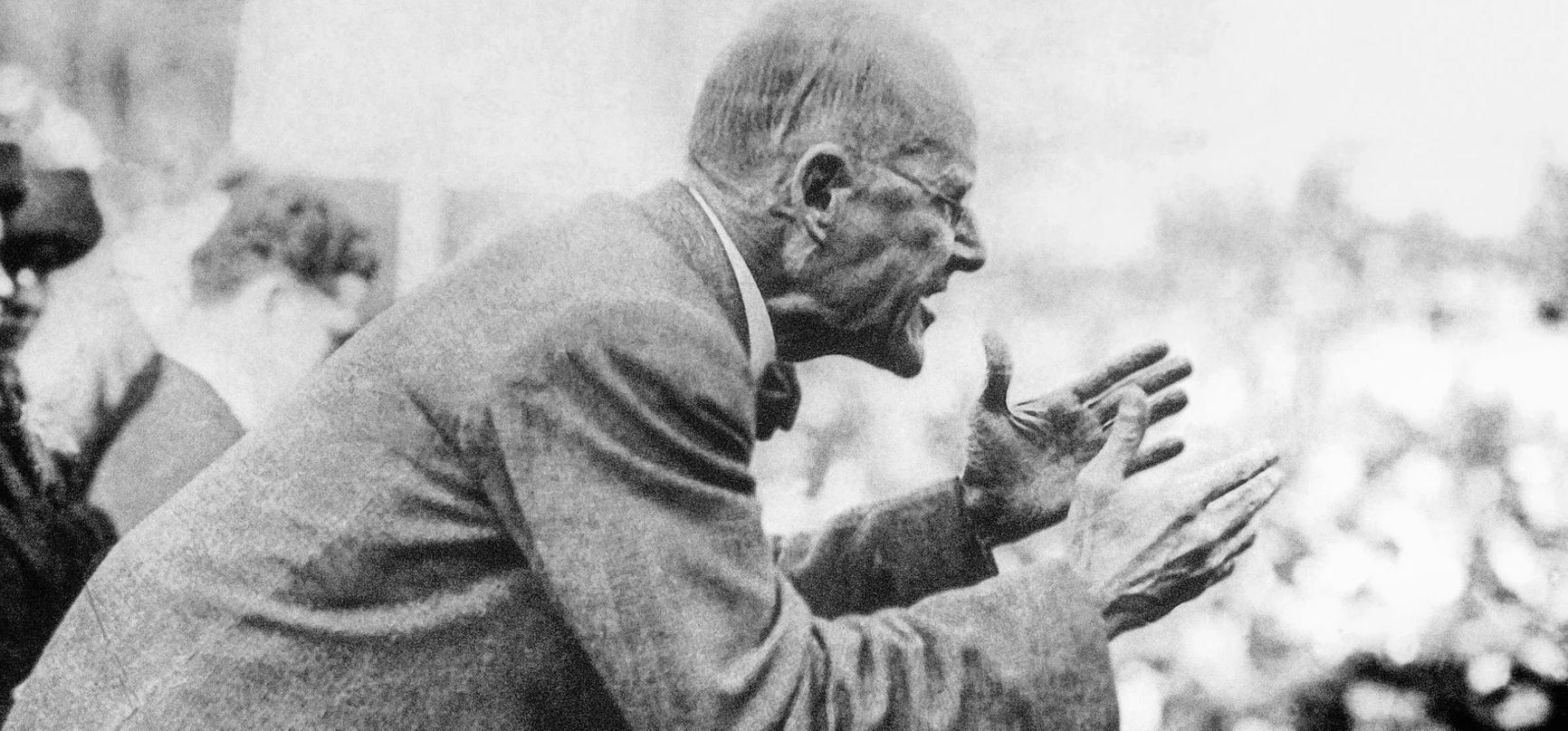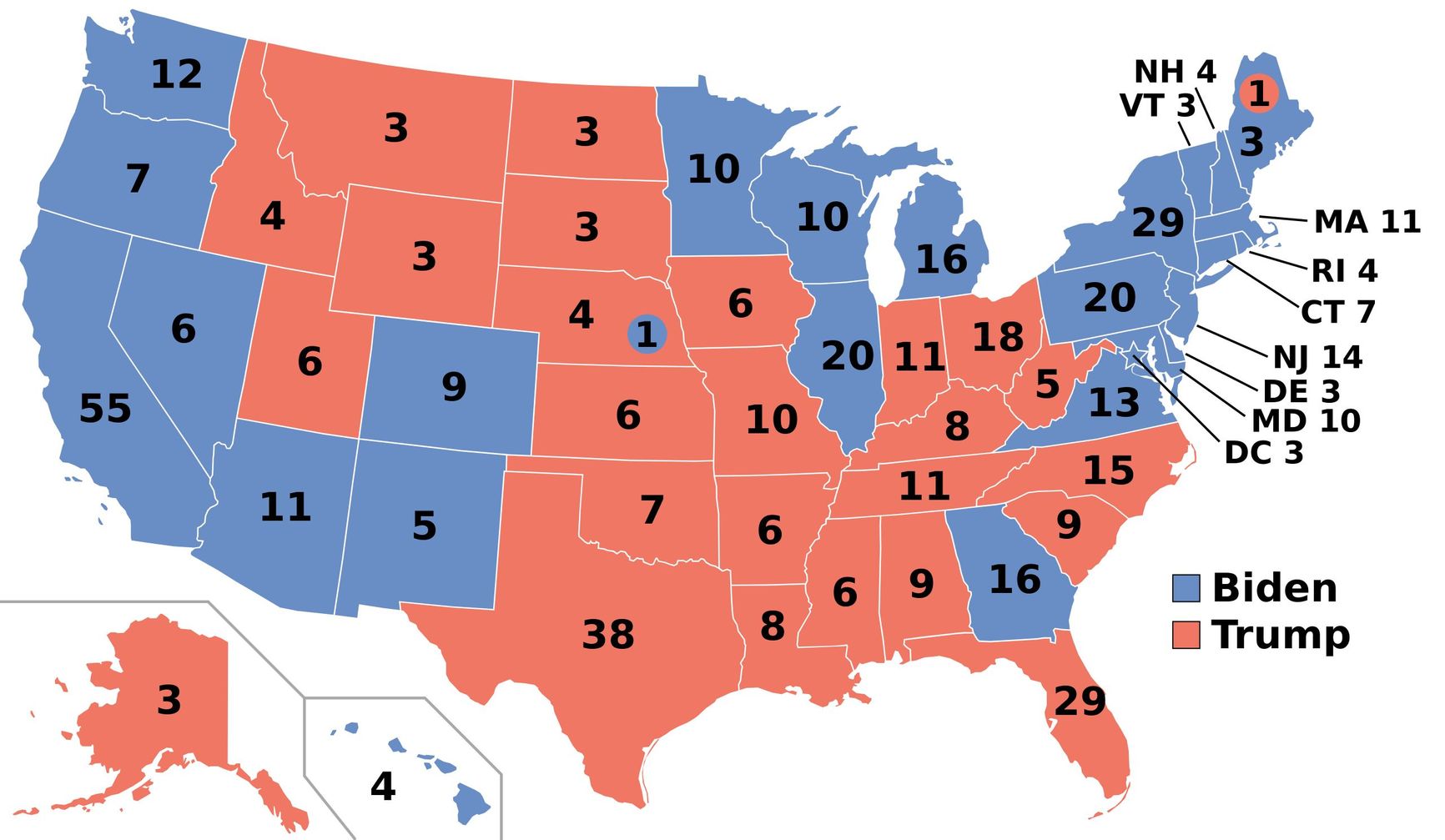

Barring an act of God, Joe Biden will face Donald Trump in the 2024 U.S. presidential election. Despite the multiple criminal indictments and civil lawsuits filed against Trump since he left office, there is no legal mechanism capable of disqualifying him from running for president. Yes, Trump’s trial in a case involving allegations that he illegally paid $130,000 in hush money to an adult film actress is set to begin on April 15. But even if he is convicted and sentenced to an actual prison term before the vote in November, the only thing standing between the former reality TV star and a second stint in the Oval Office is the common sense of the American electorate. It is a check that failed in 2016, one that nearly failed in 2020, and one that may well fail again in 2024. The result largely depends on how many anti-Trump Americans actually take the trouble to vote.
If two old men manage to live until November 5, then America will have its first presidential rematch since 1956, when Republican Dwight Eisenhower defeated Democrat Adlai Stevenson for the second consecutive time. There is an appropriate anecdote from that campaign. As the story goes, an attendee at a Democratic rally in San Francisco approached the party’s candidate and said, “Governor Stevenson, after that speech, every thinking American is going to vote for you.” Stevenson, better known for his intellectual prowess than for his personal charisma, is purported to have responded, “Madam, that isn’t enough. I need a majority.” Stevenson lost the popular vote 57.4%-42.0%.

Of course, in 1956, the Democratic challenger was running against a popular, noncontroversial, incumbent Republican president who also happened to be a genuine war hero. In sharp contrast, in 2024, aging incumbent Democratic president Joe Biden looks set to compete for votes once again with an anti-intellectual “short-fingered vulgarian” — one who currently faces criminal indictments in Florida, Georgia, New York, and Washington, D.C.
But no matter what the outcome of those cases might be, Donald Trump will still be the Republican party’s candidate for president come November 5 (provided that the 78 year-old fast food fanatic physically survives until then). A recent Supreme Court decision ruled that Trump cannot be removed from election ballots, and the United States does not prohibit convicted felons from running for president — Socialist Party candidate Eugene Debs even took home 3.4% of the 1920 popular vote from a prison cell, having received a 10-year sentence for “sedition” after openly opposing America’s participation in WWI.

Eugene Debs
And there is a very good reason why Trump will be allowed to campaign for president regardless of his legal status. It is a reason that The Insider’s audience will understand all too well: some criminal convictions really are politically motivated. In the United States as it still exists, not even an autocratic “grandpa in a bunker” could prevent his chief political rival from freely and fairly registering his candidacy and deciding things at the ballot box.
Of course, the criminal cases against Donald Trump — which range from the allegation that he falsified business records while paying for the silence of an adult film actress to the charge that he knowingly fomented an attempt to overturn the legitimate results of the 2020 election — are orders of magnitude more meritorious than those against Alexei Navalny ever were, and as a result, there ought to be one all-important obstacle to a man like America’s 45th president ever coming anywhere close to power: a free and informed electorate. That check failed in 2016, it nearly failed again in 2020, and the odds are disturbingly high that it will fail again this November.
The reason is both indescribably complex and frustratingly simple: somewhere around 70 million Americans have demonstrated — twice already — that they are prepared to vote for Donald Trump almost no matter what he says or does. In effect, he has turned the Republican Party into a cult of personality — driving out a small cohort of its “never Trump” establishment, co-opting the loyalty of formerly respected “conservative” influencers, and brainwashing his masses of core supporters using the kinds of authoritarian propaganda techniques familiar to any Russian with relatives who support Vladimir Putin and his “special military operation.” The reason why Donald Trump can seemingly get away with anything is because his supporters still appear to genuinely believe that their candidate is a truth-telling dissident rather than a serially mendacious authoritarian — that he is the American Mandela rather than the American Mussolini.
Trump's supporters still appear to genuinely believe that their candidate is a truth-telling dissident rather than a serially mendacious authoritarian — that he is the American Mandela rather than the American Mussolini
Speaking as an American, it is disturbing to me how many otherwise perfectly normal accountants, dentists, delivery drivers, factory workers, and financial analysts back home have been fooled by Donald Trump’s deceptively effective self-promotion. Do all Americans deserve some small portion of blame for allowing him to get away with it? Of course we do, even if a majority still opposes Trump, and even if the Democratic Party has remained more or less tethered to reality. The only available mechanism for solving a problem like Trump’s frighteningly large dictatorial movement really is “trusting the democratic process.” It’s just that, by doing so, the collective “we the people” really might freely and fairly choose to end American democracy this November.
It is important to remember that things were not always this way. In 2016, before Trump faced the very real prospect of spending the rest of his life in prison, the conventional wisdom in America held that the former reality TV star was unlikely to win the Republican primary against a field of largely normal, establishment candidates. After he did, it was widely assumed that he could not win a general election, especially after archival footage that showed Trump bragging about sexual assault led several women to make public claims against him in the weeks before the vote.

Jean Carroll — one of the women that accused Donald Trump of sexual assault
In 2020, despite four years of increasingly anti-American statements and nine months of COVID pandemic mismanagement, Trump really almost won again. Despite four more years of absurdity that included an attempt to overturn the 2020 election results, multiple lawsuits, and encouragement for Russia to attack a NATO country, the 2024 election is going to be disturbingly close yet again.
The 2024 election is going to be disturbingly close yet again
In large part, this is the fault of America’s archaic electoral system. The men who wrote the U.S. Constitution in 1787 really did have a pre-modern view of democracy. At the birth of the republic, only property-owning white males could vote, and the highest office they were permitted to choose directly was the House of Representatives. Senators were selected by state legislatures, and the President was to be chosen by a process in which “Each State shall appoint, in such Manner as the Legislature thereof may direct, a Number of Electors, equal to the whole Number of Senators and Representatives to which the State may be entitled in the Congress.”
The original aim of the Electoral College was to put the choice of a President in the hands of a small group of respected citizens. However, these “Electors” could be chosen in any manner a given state saw fit, and by 1832, every state besides South Carolina was appointing its electors via a popular vote. Although the Constitution can be amended, and although proposals to abolish the Electoral College model in favor of a national popular vote have been made, in zero-sum games like competitive politics, change always benefits one side or the other; thus, sufficient momentum to reform the process has never materialized.

Electoral College vote distribution in the 2020 U.S. presidential election
With a few exceptions, the winner of the popular vote in a given state receives 100% of its Electoral College votes, whether the candidate’s winning margin is 99-1 or 51-49. Think of the process like the Stanley Cup Finals; if the Boston Bruins win the first game 5-0, then the Winnipeg Jets proceed to win each of the next four contests by a score of 1-0, no one disputes that the Jets are the rightful champion, even if they were outscored 5-4 over the course of the series. The nuance when it comes to the election is that big “games” like California are worth 54 points, while smaller ones like Wyoming and North Dakota are worth only 3.
If the U.S. had a directly democratic system, then Trump would have lost the 2016 election
If the U.S. had a directly democratic system, then Trump would have lost the 2016 election by a margin of 48.2%-46.1% and the 2020 election 51.3%-46.8%. Instead, in both cases, while Trump was defeated in large states like California and New York by millions of overall votes, the margin in a few sizable states — Arizona, Georgia, Michigan, Pennsylvania, and Wisconsin — was only a few tens of thousands. In 2024, the scenario is likely to repeat itself, with Biden winning an appreciable plurality of the national popular vote while nervously waiting for election night returns from the same collection of too-close-to-call states.
After five years spent getting to know the two candidates, there are very few “undecided” voters left in America. The two candidates most likely to be on the ballot are viewed almost identically unfavorably, but with one small nuance: if Donald Trump were to suffer some sort of catastrophic health incident between now and election day, his supporters would be genuinely upset; if Joe Biden were to suffer some sort of catastrophic health incident between now and election day, his supports would largely rejoice (as it might give them the opportunity to cast their anti-Trump ballot in favor of a more appealing candidate than the one they currently have). In other words, Trump voters are largely motivated by their love of Trump, while Biden voters are motivated primarily by their antipathy to Trump.
Despite everything that has happened over the past eight years, right around 40% of Americans continue to be pro-Trump, and nothing that might occur over the next seven months is likely to change that. At this point, it does not matter what Donald Trump says about immigration, health care, inflation, taxes, Russia, NATO, or Ukraine. Almost no matter what, somewhere around 70 million of my fellow citizens are going to vote for him this November. The only question is: will enough of the anti-Trump majority turn out in Arizona, Georgia, Pennsylvania, Wisconsin, and my home state of Michigan to stop him?
In 2016, we did not. In 2020, we did. In 2024, we will get what we deserve — one way or the other. I will not stop worrying until the votes are counted in November. Neither will my friends in Ukraine, who stand to lose much more from a Trump victory than I do.